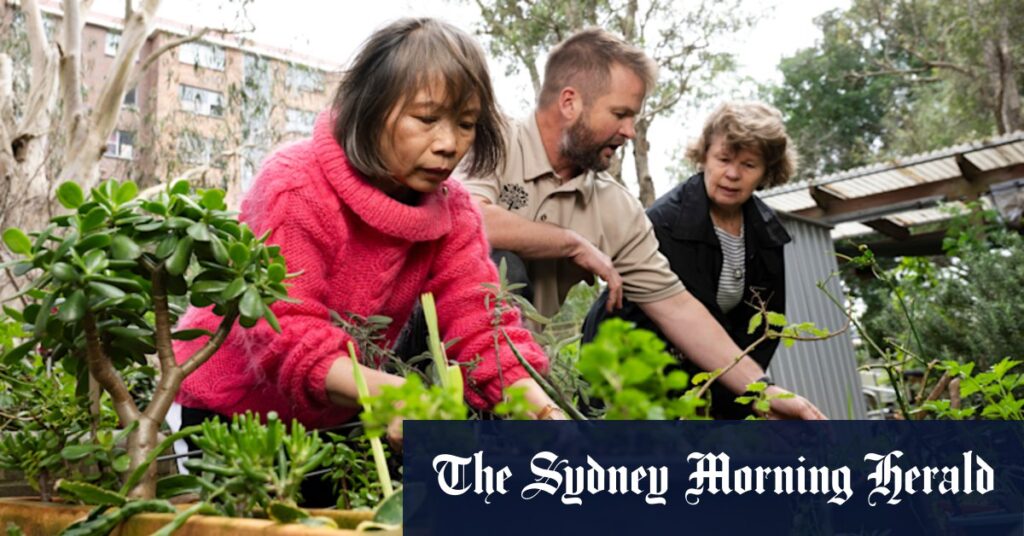“Things like having a space that’s too small or too big, or it doesn’t get enough sun, or they’re renting, so they don’t know how long they can stay there.
“Clearly, this is a really emotional issue for them.”
Loading
Goodall, co-lead author with Dr Jonathan Kingsley, said some respondents had resisted downsizing because they did not want to leave their gardens.
“We do need more housing, but we also need better housing. It is not just about supplying little boxes which have no green space. It’s about supplying housing that’s good for people, and that means access to nature and green space, whether it’s a backyard or a communal garden or just the ability to have some plants on your balcony with access to sunlight.”
Goodall called for more gardening assistance programs, more secure renting and garden-friendly apartments. “Lots of us recognise that getting our hands dirty in our garden space is good for our health and wellbeing.”
Pettitt said the challenge was to encourage more people to participate. At many of the Homes NSW programs, they’ve found gardens can be a useful and safe place for people to meet and talk.
At Poet’s Corner, Le arrived with a thermos of tea and biscuits to share with me, our photographer, Pettitt, her friend Young Ja Chong, and Chamberlain, who volunteers at a range of gardens across Sydney.
The plots reflect the multicultural make-up of the public housing nearby, with Asian vegetables and herbs, including one – fish mint – named for its smell, mixed with Australian natives, perennials and parsley, sage, rosemary and thyme.
Le said a morning glory plant (water spinach called rau muong in Vietnam) brought back memories of her life in communist Vietnam when that was the only thing she had to eat.
Chamberlain said gardens encourage social interaction. On a typical day in the garden, five or six people will stop to talk and admire the plants, she said.
Loading
Working together is not all sniffing the roses. Gardeners have to manage different expectations – about what is appropriate to plant, tolerance of those who may want to take generous cuttings or weed someone else’s patch, and what can and can’t be composted. (To manage that problem, Le developed an ingenious and tiny compost spot within her lot.)
Le said since she had been gardening, the best thing was getting out of her apartment and socialising with others. Her neighbour often calls her to ask what she is doing. “I say nothing. She says, ‘How about we go to the garden?’ That is her usual question. I [then call another neighbour] Maria, and the three of us come here, we chat.”
Sometimes they bring food to share at the communal table after gardening. “Because in my [unit], there’s not enough space to get many people together.”
Read the full article here


